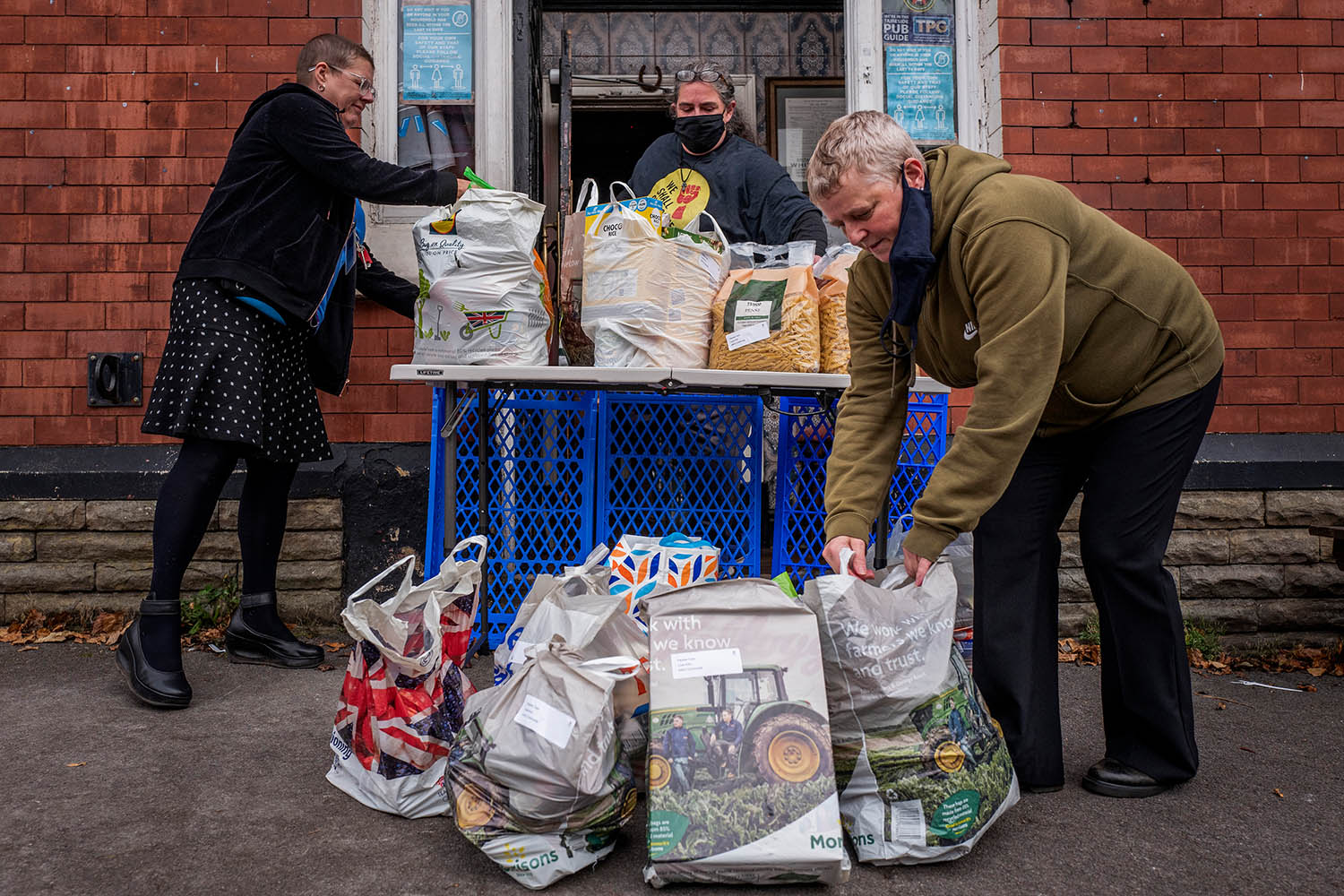Is the UK “a rich country”, asked the economist Max Mosley earlier this year in a report by the National Institute of Economic and Social Research (NIESR). It might, he observed, seem “a surprising question to ask” about the world’s sixth largest economy. The answer, though, is not as “straightforward” as it might have been in the past.
There has been a debate about “broken Britain” in recent weeks. Many rightwing commentators see a nation brought down by uncontrolled immigration, soaring crime rates and unacceptable demographic change. Many liberals dismiss the “broken Britain” rhetoric as “hyperventilation”.
Much of the debate is indeed grotesquely wild and preposterous. And yet, Britain is broken, though not in the way most commentators perceive it. This is a nation in which thousands of children live in “almost-Dickensian” poverty, in the words of a recent report from the children’s commissioner for England. In which welfare benefits have covered the cost of essentials in only two out of the past 14 years (those two being the Covid years, when claimants received a universal credit uplift). In which unemployment benefits are the least generous among OECD countries, with the exception of Australia and the US, and lower, in comparative terms, than 50 years ago.
It is a nation in which employees work the longest hours in Europe and in which there is a higher proportion of low-paid workers than in any other OECD country. In which the growth of “flexible” labour markets has entrenched job insecurity and low wages, driving increasing numbers to labour in multiple jobs. In which more than 7 million people live in “food insecure” households. In which use of food banks has soared but many are forced to reject items such as potatoes because the cost of energy makes it unaffordable to cook them.
It is a nation in which the poor are increasingly pushed into private renting, a sector in which one in four properties fails the decent homes standard, being unsafe or in a state of disrepair. In which more than a third of private renters live in poverty. In which less than 5% of private rental accommodation is affordable on housing benefit.
Material deterioration has been accompanied by political marginalisation
It is a nation in which civil society is fraying and the social spaces in which people can engage with others, from pubs to youth clubs, from libraries to music venues, are closing down. In which scandals from Grenfell to the Post Office, from tainted blood to the grooming gangs, show not just a failing state but one that often works against the interests of ordinary people and in which few with power are ever held to account.
It is a portrait of two Britains, one of which barely comprehends the challenges facing the other. A Britain that contains the wealthiest region in Europe but whose poorest households are poorer than the poorest ones in Slovenia and Malta. It is a chasm that is likely only to grow. The latest NIESR report, published last week, predicts “living standards to grow modestly… for middle- and high-income households but decline for the poorest 10%”.
Material deterioration has been accompanied by political marginalisation, as organisations that once represented working-class interests, such as trade unions, have decayed, and the Labour party has moved away from its traditional constituencies. The abject failure of the Labour government to reverse austerity policies, or take seriously the needs of working-class people, has become a trigger point transforming discontent into rage.
The case of Rushanara Ali, the homelessness minister forced to resign after it was exposed that she had evicted four tenants from a property she owned before re-letting it weeks later for a much higher rent, sums up the contempt many politicians have for their own constituents.
Material decline has combined with political voicelessness to create discontent with little outlet. For most of the “broken Britain” commentariat, though, their wrath has been stoked not by stagnating wages, slashed benefits, cuts in public expenditure or the unaffordability of housing, but by just one issue: immigration.
Many present their anti-immigration arguments as a defence of British workers. Yet, most such critics helped enact or cheered on the very policies that have broken the lives of so many Britons, from austerity to the sale of council housing, from the demonisation of claimants as “scroungers” to the destruction of trade union rights. For the likes of Robert Jenrick or Nigel Farage to masquerade as champions of the working class is as absurd as Ali feigning to be a friend of the homeless.
The government’s abject failure to reverse austerity policies… has become a trigger point
Yet, as protests outside migrant hotels show, immigration has unquestionably become a lightning rod for popular disaffection, symbolic of a world that feels precarious and out of control.
In many places, such as Epping, local tensions over immigration have been stoked by allegations of sexual violence made against asylum seekers. These are serious allegations and should not be ignored for fear of fuelling disharmony. But neither should they become reasons for demonising asylum seekers and migrants.
Just as many commentators are interested in the working class only when it provides a cover for hostility to immigrants, so, as campaigners against sexual violence have observed, many seem concerned about violence against women and girls mainly when the perpetrators are foreign.
Turning the issue of “broken Britain” into one of immigration deflects from the real problems facing the working class and the poor, obscures the real causes of those problems, and lets off the hook those who are responsible for breaking Britain. It only ensures that the brokenness will deepen.
Photograph by Anthony Devlin/Getty
